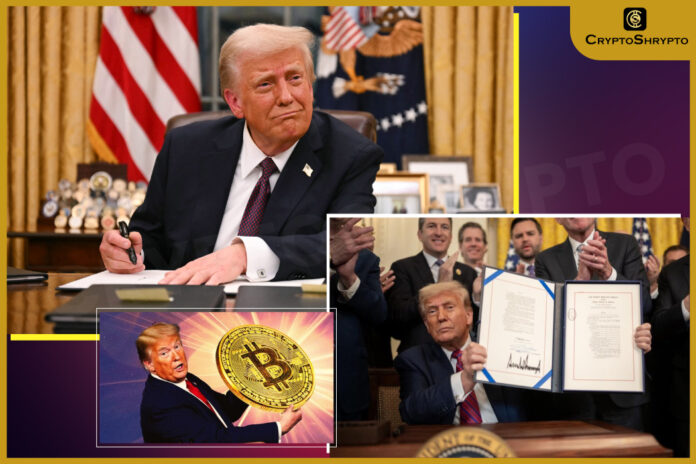In a landmark move, the Trump administration’s Working Group on Digital Assets released its long-anticipated policy report Wednesday, unveiling a sweeping vision to regulate cryptocurrencies, empower banks, and strengthen the U.S. dollar through stablecoin adoption.
At the heart of the report is the call for a clear classification system—or “taxonomy”—to define which digital assets qualify as securities and which fall under the category of commodities. This foundational step is intended to eliminate regulatory uncertainty by dividing oversight between the SEC and the CFTC. Under the proposal, the CFTC would regulate commodity tokens and spot markets, while the SEC would handle securities-related tokens.
The report urges both agencies to collaborate, arguing that regulatory harmony is crucial for maintaining U.S. leadership in financial innovation. “Clear rules protect investors and foster American innovation,” SEC Chair Paul Atkins stated in response.
A significant recommendation is to allow traditional banks to fully enter the crypto space. The working group suggests streamlining the bank charter process and making it easier for institutions to provide digital asset services, including custody—opening the door to greater institutional adoption.
Stablecoins feature prominently in the report, positioned as a tool to bolster the U.S. dollar’s dominance in global trade. While the group opposes the development of a central bank digital currency (CBDC)—recommending passage of the CBDC Anti-Surveillance State Act—it acknowledges that many stablecoin features, such as asset freezes for law enforcement, mirror CBDC capabilities.
The document also calls for tailored tax legislation to address the nuances of digital assets, including staking rewards. It proposes adapting existing tax frameworks for a new asset class with unique characteristics.
The release of this report marks a pivotal moment in U.S. crypto policy, reflecting a broader push to integrate blockchain innovation into the financial system without compromising national interests. If adopted, these recommendations could reshape how digital assets are treated across banking, regulation, and taxation—ushering in a more defined era for American crypto governance.




